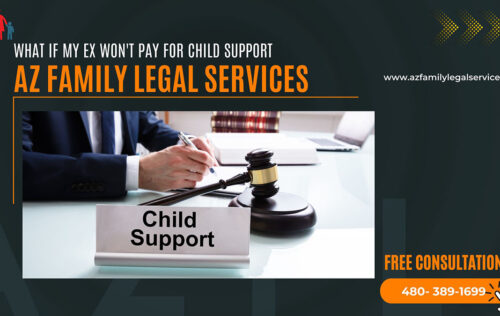ARIZONA FAMILY LEGAL SERVICES
CHILD CUSTODY
Introduction to Grandparents Rights to Child Custody

What it comes to families, they come in all shapes and sizes. The standard nuclear family generally consists of two parents and their children. The blended family has become a much more standard family make up as well. Those families could consist of stepparents, stepchildren, half siblings, cousin, foster children, or adopted children. One American ideal for a nuclear family is one mom, one dad, and two point five children – what ever that actually means. American culture has evolved to change the view of that ideal. Today, there are dozens of different family configurations, especially with the ability for gay couples to more easily adopt children. Many of these families include extended relatives as well – like aunts, uncles, and grandparents.
One thing that is a common concern among families – no matter the set up, is what happens to my ability to interact with minors of that family when divorce, separation, or death takes place? When it comes to parents, the right to be apart of their child’s life is a constitutional right. These rights are really hard to take away from parents, which is why some parents spend so much time in court determining who has what rights after a divorce or separation. But what about the rights of other family members, like grandparents of the minor? Generally speaking, there are no rights for grandparents – at least not to the standard that parents have.
The Constitutional Right to Parent
To begin with, like previously said, the right to parent is a constitutional right that the United States Supreme Court recognized fairly recently. In 1925, the Supreme Court had one of its first rulings that was decided on the basis of preventing undue hindrance in the ability for parents to chose their child’s schooling choices.[iv] The case was Pierce v. Society of Sisters. In this case, the Supreme Court struck down a compulsory attendance act that made it a requirement for all parents to send their children to public school over private or religious schools. The Supreme Court determined that forcing parents to chose public school over any other school options was an interference with their ability to parent their children. For many people, education is incredibly important and the choice of where to educate ones child is also incredibly important. By taking away that choice, the State was basically making that decision for the children. This was just the beginning of the fundamental right to parent. The Supreme Court since then has broadened this right to include many other parental choices and rights.
Now, it is not just the parents that have a right with this relationship – the children have a right to this relationship as well. For this reason, a voluntary severance of parental rights is not an easy task. To actually legally end the parental relationship between a parent and a child, a lot has to happen. The court has made it hard because the court believes that children have a right to a parental relationship. Even though a parent can just walk away from a child at any time – that does not mean their legal duties have ended. If a parent has a legal obligation to pay child support, but abandons the child, the legal obligation to pay child support remains. To legally terminate parental rights, the parent must complete a number of steps before severance can be in affect. Even if the parent completes all of the steps, the court may still determine to not severe the parental rights.
Today, there are so many things that can go wrong with a marital relationship. The current divorce rate in the United States is between 40% and 50%. If children are involved, usually the family will go through court proceedings to determine where the children will live, who will have decision making power, and many other possible things. These proceedings are meant to focus on the parental rights and the best interest of the children. If the father to two children has joint custody with mom, meaning the children are with him 50% of the time, the court is not going to determine when those children will see the extended relatives of dad. Dad will make that decision, and the court will often remind family members of that decision. It becomes more difficult when one parent has full custody of the children and the other parent only has visitation, because the time is already spread so thinly. But, the courts main focus is to protect the parental rights and the best interest of the children.
Grandparents Rights to Child Custody
When custody, or parenting time, is split between the parents and those parents ensure that extended relatives see the children – not too many issues arise. Granted, extended relatives will not see the children as often, but neither will the parent. This is just an unfortunate side affect of divorce that the entire close extended family will feel. Family relationships can be very difficult when a family is strained. If mom was the parent who always ensured the children saw the father’s parents because father hated his parents – who will ensure the children see those grandparents if there is a divorce? It is possible the mom would continue, but her time could be cut in half and she has her own parents to think about now as well.
Another similar scenario that could decrease or stop all visits for extended relatives is the death of a parent. Again, the parent that is survived may still continue those relationships, but that is not always a guarantee. Also, if that survived parent remarries, an entirely new extended family is added into the mix and now time is even more split amongst relatives. So what do extended relatives – primarily grandparents do?
To begin with, it is very unlikely for a court to award custody to a grandparent of a child absent an extreme circumstance. Some examples for when a grandparent may ask for custody could be if the parent (their child) has left the picture and now the other parent has full custody. A grandparent may ask the court for some type of custody arrangement so they could be apart of their grandchild’s life. It is unlikely for a court to grant this, whether the parent is gone or deceased, because the court views that as an infringement on the other remaining parents right to parent and decide who the child will see. It is not an impossible option though. If the remaining parent works full time and their spouse recently died – they may want some additional help but want to make sure the other person stays within the bounds they agreed upon so they might go through the court. The court would be able to put together an agreement and enforce that for either party.
The most common type of grandparent right is going to be visitation rights. This allows the grandparent to still see the child and spend time with them, but keeps all the decision making power with the parent. In Arizona, a court may award visitation rights to a grandparent of a child if a separation of the parents occurred at least three months prior or if the child was born out of wedlock. These visitation rights will remain unless the child is adopted out of the family. Then the child has new parents, and their parental rights take priority. The visitation rights will not be cut off if a stepparent adopts the child though.
In California, the process to award grandparent visitation rights is more extensive than other states. In California, the court will take the status of the parental relationship into consideration as a primary factor. Meaning, the court will look to see if the parents are both alive, if both parents are seeking custody arrangements, or if one or even both parents are no longer around or even deceased. If both parents are still actively involved with the child’s life, the court will likely determine no visitation rights for the grandparents – because the parents can determine when the child will see the grandparents. Next, the court will determine if the grandparents have had a preexisting relationship with the child. This has a lot to do with the best interest of the child, and making sure the child is not thrown into a forced visitation routine with a stranger. Finally, if a parent expresses to the court their wish to not allow the grandparents to visit – the court will likely grant those wishes. Again, this has to do with the fundamental right to parent. This is a right the court takes very seriously and will adamantly protect.
Conclusion to What are Grandparents Rights?
The relationship among a family, both immediate and extended, can be found all over the spectrum. Some families never speak, and some all live in the same house. So when a separation or a divorce, or even the death of a parent occurs – it really has a lasting affect on the entire family. When custody decisions are being made, the court primarily looks at just the parents, not the extended relatives. The right to parent is a fundamental right in the United States – but that is reserved for parents over extended relatives, absent extenuating circumstances. When it comes to grandparent’s rights, the courts are very hesitant to make decisions regarding custody awards to grandparents because it could hinder the fundamental right to parent for the parents of that child. The only options for grandparents who are unable to regularly see their grandchild – and want to maintain a relationship, is to seek visitation rights and to have those enforced through the court system. The court will take a lot of factors into consideration, but if the court determines it is in the best interest of the child to see their grandparents – the grandparent’s will likely have at least visitation rights and be able to remain in the child’s life on a regular basis.



